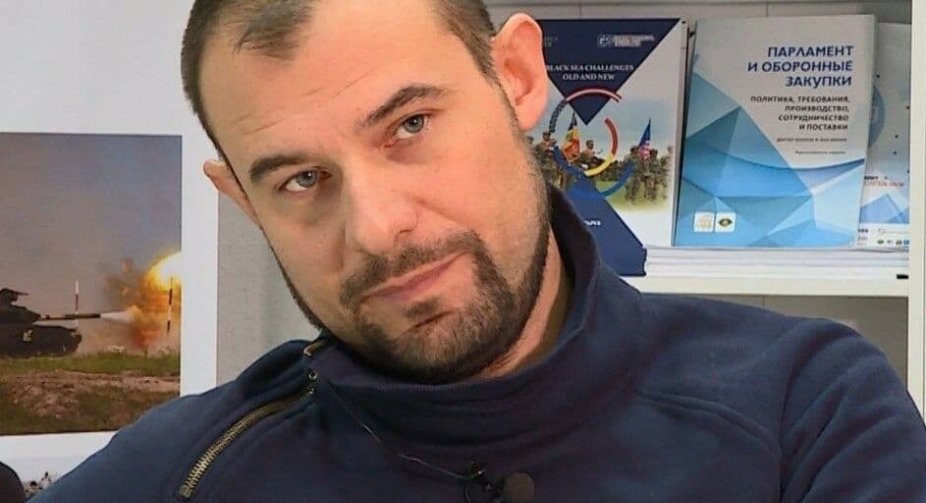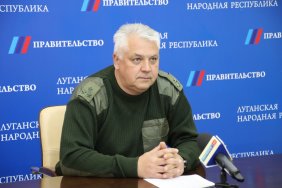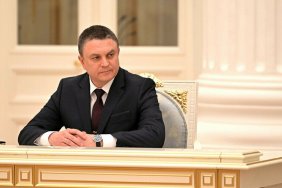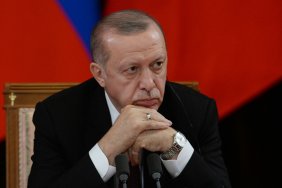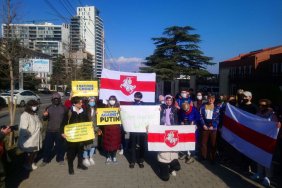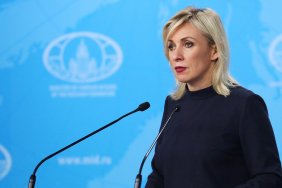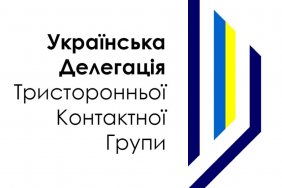Ukraine's ability to build its own nuclear weapons was the reason for one of the fears Putin voiced when proclaiming the independence of the DPR and LPR. In his opinion, this is not mere bravado, because the country "does still possess Soviet nuclear technologies and means of delivery of such weapons, including aviation, as well as Tochka-U operational-tactical missiles...whose range exceeds 100 kilometers. The reason for Putin's fears was Ukraine's initiative to convene a council of the Bucharest Memorandum, which guaranteed the country's territorial integrity in exchange for giving up nuclear weapons.
According to Igor Fedyk, political analyst and head of the South-Eastern Europe section of the New Geopolitics Research Network, Ukraine is right to raise the issue of updating the Memorandum.
Does the significance of the Bucharest memorandum increase after the frank aggression? Will it unite the issue of de-occupation of Crimea and de-occupation of Donbass into one case?
Regarding the memorandum - let's see how the Americans and Britons behave. The occupation of Donbass and Crimea have always been one case. Although the Russians did everything they could to separate them.
To what extent is the Memorandum still legally binding?
Since 2014. - when Russia, one of the signatories of the Budapest Memorandum, carried out an aggression against another signatory, Ukraine, there has been talk that the Budapest Memorandum allegedly has no legal force and is not an international treaty. The main argument is that it is not called a treaty, but a memorandum, and that it has never been ratified by anyone. First, the Budapest Memorandum is an international treaty because, according to the provisions of the Vienna Convention on the Law of Treaties of 1969, the term "treaty" means an international agreement concluded between States in written form and governed by international law, regardless of its particular designation.
Secondly, the Budapest Memorandum has not been ratified because it contains no provision requiring ratification. Second, ratification is only one way of expressing a state's consent to be bound by an international treaty.
The Budapest Memorandum went into effect immediately after it was signed, because the text of the treaty itself indicated that it would apply from the moment it was signed. Also, the Memorandum was duly registered with the UN, in accordance with Article 102 of the UN Charter. Therefore, as an international treaty, it still retains its legal force.
How realistic is this initiative in general - that is, are the signatories obliged to meet or does the meeting depend solely on the goodwill of the participating countries?
The Memorandum does not define specific measures aimed at the implementation of the guarantees provided to Ukraine. However, it is stipulated that in the event of a situation affecting the issue of these obligations, consultations on this issue should begin between the United States, Britain, Russia, and Ukraine.
Therefore, formally, the signatory countries should gather for a meeting and discuss the issues on its agenda. Ukrainian Foreign Minister Dmytro Kuleba has already sent a demand to the UN Security Council to immediately hold consultations on urgent actions on Ukraine's security. Whether the signatory countries will agree to this meeting is another matter. Everything is clear with Russia, which violated the memorandum by attacking Ukraine in 2014. If the other signatories - the United States and Great Britain - do not agree to the meeting, or if it is held, but no decisions are made on security guarantees for Ukraine, then, as Vladimir Zelensky said during his speech at the Munich conference, "Ukraine will have the right to consider that the Budapest Memorandum does not work and all the package decisions of 1994 have been questioned. Among these package agreements is, in particular, the Treaty on the Non-Proliferation of Nuclear Weapons. Therefore, Ukraine will have every right to declare its withdrawal from this Treaty. This does not mean that the next day or some time later it will start to restore its nuclear potential. The main result of such a step will be a message to all other states that security guarantees from the nuclear powers are nothing more than words on paper.
Could this mean that the coalition is so strong that the president can put the issue of the de-occupation of Crimea on the agenda?
Here I would note two important points.
The first is that at such an important event, the Ukrainian president once again reminded Russia and the international community that for Ukraine, the issue of de-occupation of Crimea is not off its agenda. And that Ukraine will continue to do everything to return it peacefully. In particular, within the framework of the Crimean platform.
The second is the emphasis on the fact that the de-occupation will take place only by peaceful means. This is an answer to Putin's statements that Ukraine seeks to join NATO in order to return Crimea by force. As Volodymyr Zelensky stated, "Crimea and the occupied areas of Donbas will definitely return to Ukraine, but only in a peaceful way.
Also, in the context of Crimea, it is worth noting the words of the Ukrainian president to the UN, the cardinal reform of which is not that overdue, but long overdue. The UN, which protects peace and global security, not only cannot protect itself, but also wants nothing to do with the fact that there is still a violator of the UN charter among the permanent members of its Council, who has annexed the territory of one of the founding countries of the organization.
Or is this just an attempt to raise the stakes for the next TAG talks - say, Russia is demanding the NATO withdrawal and Ukraine is demanding the return of Crimea, and a temporary compromise could be a reformulation of the Minsk agreements?
The statement of the Ukrainian president about Crimea is not a raising of stakes, but, as I said before, a reminder, first of all, to Russia, as well as to the world community, that the issue of restoration of the territorial integrity of Ukraine, in particular through de-occupation of Crimea (peacefully), is constantly on the agenda of Ukraine. As for the possibility of reformulating the Minsk agreements, after Putin's recognition of the "LDPR," the Minsk agreements are now officially dead. Dmitry Peskov, the press secretary of the Russian president himself, stated that the Minsk agreements were no longer on the agenda.
What to do now with the recognition of the DPR and LPR?
Having signed decrees on the recognition of the "LDPR," on the one hand, having lost for himself a strong lever of pressure on Ukraine in the form of the Minsk agreements, Putin, on the other hand, decided to increase the stakes even more in the confrontation with Ukraine and the West and push the situation in eastern Ukraine towards the resumption of active hostilities. The prospect of a major war in eastern Ukraine is quite real, since the constitutions of the "republics" proclaim their sovereignty over the entire territory of Luhansk and Donetsk regions. The DPR and LPR now control approximately half of it. Consequently, after Putin's recognition, the "republics" could launch a military operation to "restore their territorial integrity. Russia, on the other hand, will more than likely provide them with all kinds of support, while still pretending that it has nothing to do with this, and that its troops are there only to prevent the "genocide of the people of Donbas" by the "Ukrainian punitive forces".
That is, the Kremlin is raising the stakes and showing that it is not afraid of escalation and sanctions. It deliberately aggravates the situation and again resorts to blackmail of Ukraine and the West: either you accept our demands regarding NATO and Ukraine, or there will be a war, which will begin in its east and may expand to the rest of its territory. With all the ensuing consequences not only for Ukraine, but also for Europe.
How far Putin will go in Ukraine will depend on how Ukraine and other states react to his current moves: whether Ukraine will continue to maintain a strong stance and demonstrate a willingness to defend itself and whether Western states will impose the "hellish" sanctions against Russia that they have repeatedly announced.
Front News
Beslan Kmuzov
